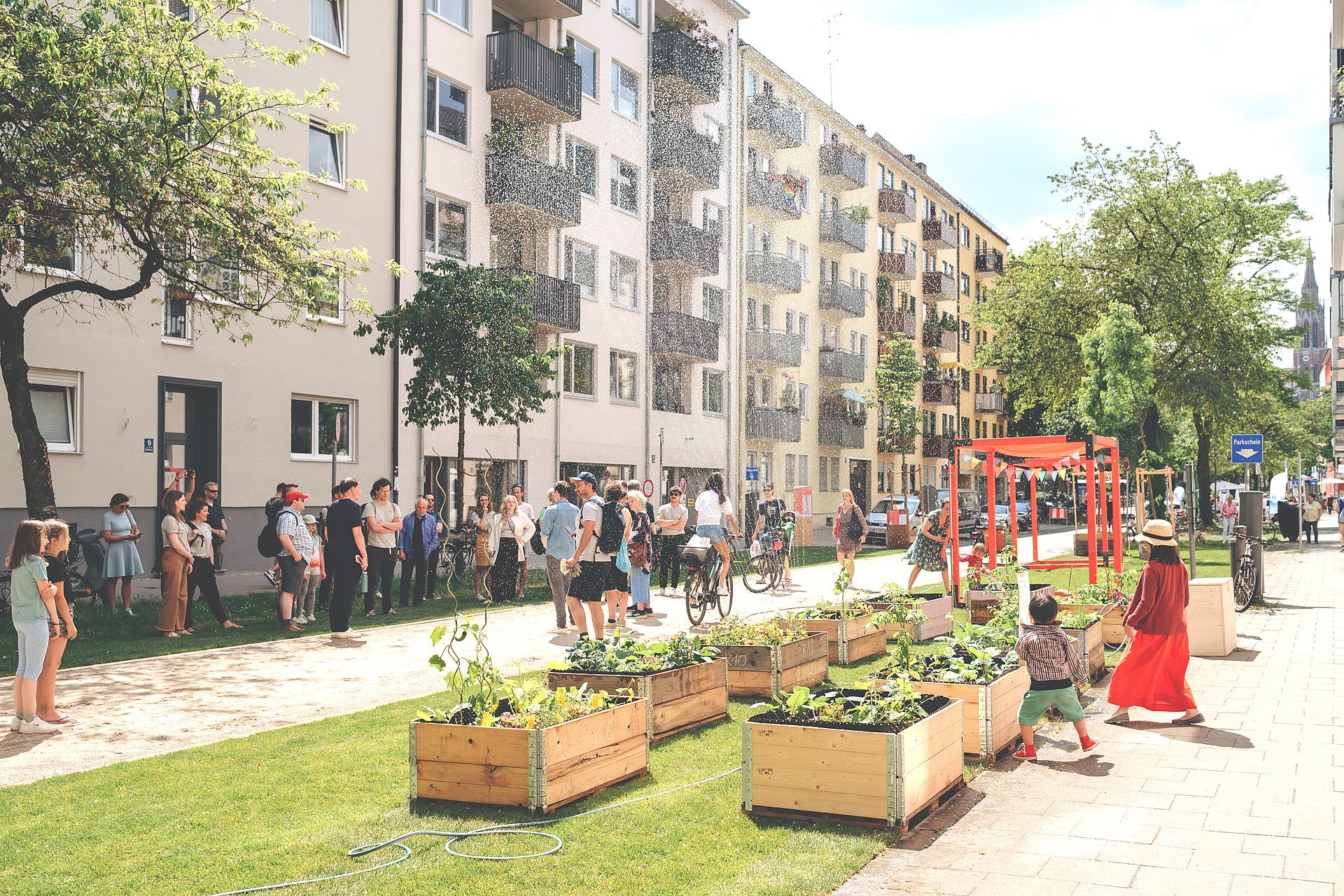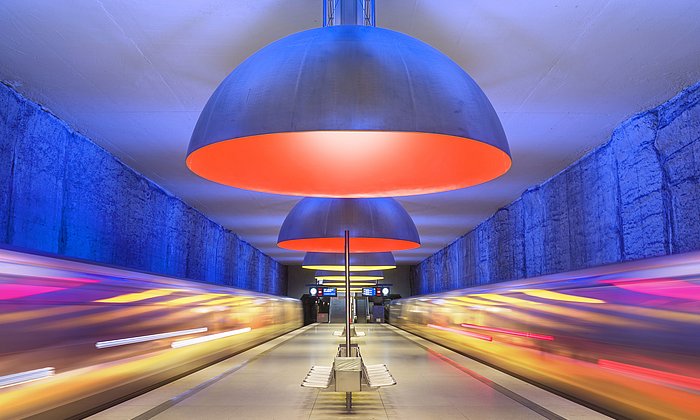Results of the project "Car-reduced Neighborhoods for a Livable City"
High marks for traffic experiment in Munich

To this end, households in the two districts were invited to participate in two online surveys - before and towards the end of the implementation of the measures. While a relatively large number of residents in the Südliche Au took part in the surveys, participation around Walchenseeplatz was somewhat subdued. Here, the evaluation mainly shows a rough picture of the mood.
Overall, the majority of respondents would like to see further initiatives to transform the street space in favor of greenery, recreation, and alternative mobility options. In the Südliche Au, 60% of respondents rated the project positively overall, while 31% were negative. At Walchenseeplatz, opinions were more mixed, with a narrow majority of 45% positive ratings compared to 42% negative.
In both districts, respondents see a great need for action due to climate change. Most people are willing to engage in corresponding experiments on the future of mobility (Südliche Au 68% willing and 18% not willing; Walchenseeplatz 58% willing and 24% not willing). At the same time, however, there is great skepticism that they will actually be able to help shape this future. The researchers see a great opportunity here to strengthen citizens' personal commitment through real-world laboratories.
Similar trends regarding specific measures can be seen in both urban districts. A clear majority of respondents support the permanent conversion of parking lots and streets into green spaces (Südliche Au, 61%, Walchenseeplatz 56%; in Südliche Au, 31% disagree, and at Walchenseeplatz, 33% disagree). Additional footpaths, cycle paths, spaces for play, exercise, and culture, as well as seating and meeting places for the neighborhood, are also very popular.
The researchers self-critically admit that the selected communication formats did not reach all residents. A third of respondents rated the information policy negatively (Südliche Au 45% appropriate, 31% inappropriate; Walchenseeplatz: 35% appropriate, 30% inappropriate). Therefore, it is crucial for future projects to set up communication in an even more thoughtful, transparent, and citizen-oriented way to reach and involve all stakeholders.
Colaboration between science, the population and politics
Prof. Benedikt Boucsein, Head of the TUM Chair of Urban Design, emphasizes: "The challenges posed by climate change and the continued influx of people into cities are enormous. We must find solutions that are as compatible as possible for people, the environment, and the economy. This can only be achieved in close cooperation with the affected citizens and politicians - based on solid scientific findings. This is exactly what we want to do with the real-world laboratories."
Munich's Head of the Mobility Department, Georg Dunkel, says: "The measures taken last summer triggered an intensive discussion in urban society on the question of 'What can and should mobility in our city look like in the future?'. I think it is essential to have this discussion because there can be no 'business as usual' for reasons of space alone. We need change. We can learn a lot from the aqt project regarding acceptance and communication as well as the legal framework for the future."
The Head of Munich’s Department of Urban Planning Prof. Dr. (Univ. Florenz) Elisabeth Merk adds: "The City of Munich focuses on developing holistic approaches that simultaneously offer mobility solutions and optimize the quality of stay in public areas. Both have to meet the needs of as many people as possible. We are delighted that many residents and interested parties took the opportunity to get involved in surveys and workshops."
MCube Managing Director Oliver May-Beckmann explains: "Of course, the transport and mobility transition does not happen without headwinds. However, MCube aqt has shown that at a certain point, headwinds can become tailwinds if you empower people to get involved. That is the key to successful and necessary change processes in our country."
Background information on the project "Car-reduced neighborhoods for a livable city (aqt)"
Duration: November 2021 - October 2024
Funding body: Federal Ministry of Education and Research - Clusters 4 Future
Lead: MCube: Munich Cluster for the Future of Mobility in Metropolitan Regions
Participating scientific units of the TUM:
- Chair of Urban Design
- Chair of Settlement Structure and Transport Planning
- Chair of Networked Transportation Systems
- Chair of Traffic Engineering
- Chair of Automotive Engineering
Administration of the City of Munich:
- Mobility Department
- Department of Urban Planning
Organizations involved in research:
- Stadtwerke München GmbH
- UnternehmerTUM
- Hans Sauer Foundation
Technical University of Munich
Corporate Communications Center
- Ulrich Meyer
- presse@tum.de
- Teamwebsite
Contacts to this article:
MCube
Oliver May-Beckmann
Managing Director
+49 176 43360258
oliver.may-beckmann@mcube-cluster.com



